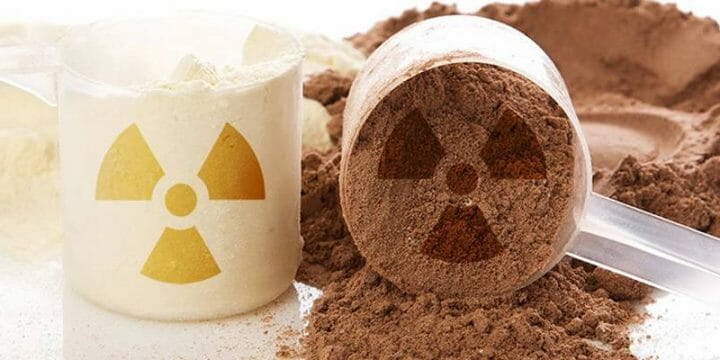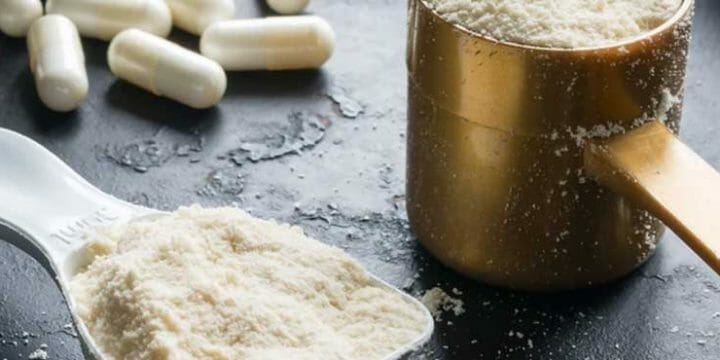One of the most common ingredients that you’ll find on the nutrition label of pre-workout supplements is beta-alanine.
And as a personal fitness coach, I’ve spent a lot of time researching the benefits and effects of this ingredient. When you take a close look at all the science behind it, you learn to appreciate it a lot more.
But the most interesting thing is how it actually works so that you can figure out whether it’s something that should be part of your supplement stack.
Let’s see what it’s about.
Quick Summary
How Does Beta-Alanine Affect The Body?

When engaging in resistance training, muscles break down glucose for energy, leading to the production of lactic acid, which causes that familiar muscle burn and fatigue [1].
Beta-alanine is an essential amino acid naturally found in protein-rich foods (such as poultry, meat, and fish) that significantly impacts the body's ability to handle this buildup of lactic acid during intense workouts.
Based on a 2010 study published in the Medicine and Science in Sports and Exercise journal, beta-alanine supplementation influences the levels of carnosine in muscle cells [2]. Carnosine acts as a buffer, protecting muscle cells from excessive lactic acid buildup, thereby delaying muscle fatigue and enhancing performance.
A 2019 study published in the Frontiers in Nutrition journal has shown that consistent beta-alanine supplementation can increase muscle carnosine levels by 30–60%, which can lead to improvements in muscle mass and overall exercise capacity over time [3].
In my experience, adding a pre-workout supplement with beta-alanine to my routine—and recommending it to my clients—has been a game-changer.
It's not just theory; it's a practical boost that allows you to lift heavier, push for those extra reps, and add more sets, all of which I've personally witnessed in my sessions.
Related Article: Beta-alanine vs Creatine
Who Can Benefit The Most From Beta-Alanine In Pre-Workout?
Athletes who go through intense resistance training or who engage in workouts where they push themselves through endurance training can benefit from beta-alanine pre-workout.
Let’s break that down a bit more.
First of all, any bodybuilder who aims to get the maximum benefits from each training session will notice that they can add a few more pounds to a barbell or complete an extra rep or two compared to a standard training session.
That extra amount might not sound like much. But when you add it all up over weeks and months, you’ll see faster bulking.
Similarly, endurance athletes like long-distance runners can experience similar benefits by delaying muscle burn and soreness and helping them deal with hitting “the wall” that much better [4].
“Beta-alanine aids in the production of carnosine. That's a compound that plays a role in muscle endurance in high-intensity exercise.”
- Melinda Ratini, DO, MS WebMD.com
Additionally, by buffering the pH level in muscles, carnosine may also help mitigate the neurological fatigue that often accompanies intense workouts [5].
I've noticed it helped me train with greater intensity while preserving the mental clarity needed for the technical precision and coordination demanded in both soccer and martial arts.
FAQs
When Is The Best Time To Take It?
The best time to take beta-alanine in a pre-workout is about 20 to 30 minutes before you start your workout. For endurance runners, I would recommend that you take it right when you start running.
Is Beta-Alanine a BCAA?
No, beta-alanine isn’t a BCAA. BCAA are three of the nine essential amino acids that the body uses to make other proteins. Beta-alanine is a non-proteinogenic amino acid, which means it’s used as-is and not to create other proteins.
Can You Mix Beta-Alanine with Creatine?
Yes, you can mix beta-alanine with creatine.
You’ll find that many pre-workout supplements contain both of these ingredients because they provide benefits for both strength and fatigue, making each training session a bigger success.
References:
- https://www.scientificamerican.com/article/why-does-lactic-acid-buil/
- https://pubmed.ncbi.nlm.nih.gov/20479615/
- https://pubmed.ncbi.nlm.nih.gov/31508423/
- https://www.ncbi.nlm.nih.gov/pmc/articles/PMC6092497/
- https://www.ncbi.nlm.nih.gov/pmc/articles/PMC9960300/
About The Author
You May Also Like






